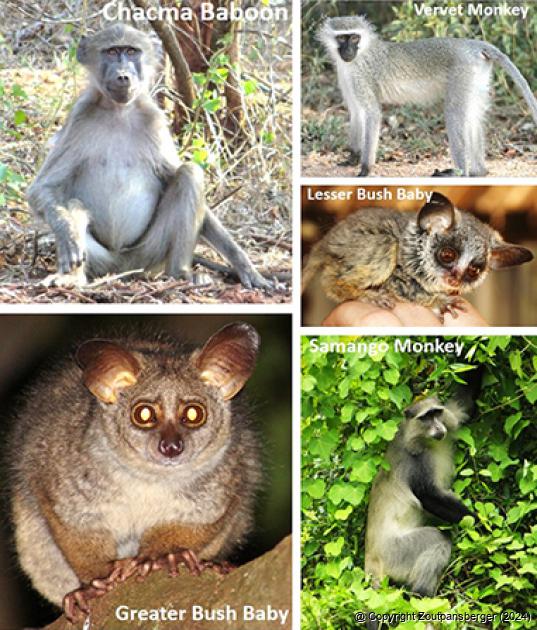

ADVERTISEMENT:

Photos supplied by Dr Bibi Linden.
Public help needed again for primate conservation
Date: 16 April 2021 By: Andries van Zyl
Roads and power lines are a threat to biodiversity globally as they can increase the extinction probability of local animal populations. It is suggested that since the 1960s vehicles possibly overtook hunting as the leading direct human cause of terrestrial vertebrate mortality.
“In this context and with the support of Soutpansberg residents, I have been able to collect data on samango monkey roadkill incidents in the area since 2012. Through this it became apparent that samango monkeys face a high risk of vehicle collisions on the 30-km-long road stretch between the Piesanghoek/Luonde turn-off and the second Levubu turn-off further east,” said Dr Bibi Linden. She is currently a postdoctoral researcher at the SARChI Chair in Biodiversity Value and Change at the University of Venda and manages the academic programme at the Lajuma Research Centre.
Linden said she would once again like to ask the greater Soutpansberg community to help with data collection on an expanded project looking at roadkill and electrocution incidents of not only samango monkeys but all other South African primate species, such as vervet monkeys, baboons, and greater and lesser bush babies (see photographs). “This information will feed into a database documenting the overall impact of linear infrastructure (roads and power lines) on primates in the area,” said Linden.
To help with the project’s data collection, Linden said they would need people to take a GPS point, give details on which primate species was found killed and how and, if possible, take a picture of the primate. “Additional information, such as if it was a male or a female or if it was an adult or young animal, is also very helpful. A GPS location can quickly be shared with a smartphone by using the ‘Maps’ app (by Google), which shows the current location as a blue point on the map. By tapping on the blue point the option ‘share your location’ appears,” said Linden.
Anyone who sees any of the five primate species road killed or electrocuted can also contact Linden on her WhatsApp-only number at 071 105 8117 or e-mail her at [email protected] to share the location and other information. “We are also interested in collecting DNA samples from road killed/electrocuted greater bush babies for future analysis,” said Linden.
Viewed: 1085
|
|
Tweet |

-

MMSEZ now also looking at nuclear power
19 April 2024 By Andries van Zyl -

Woede ná R524 nog ‘n lewe eis
19 April 2024 By Andries van Zyl -

T20-spanne hervat liga ná kort breek
19 April 2024 By Andries van Zyl -

Vrae oor waarom Vhembe so sloer?
18 April 2024 By Andries van Zyl -

Border fence contractors lose appeal
18 April 2024

Andries van Zyl
Andries joined the Zoutpansberger and Limpopo Mirror in April 1993 as a darkroom assistant. Within a couple of months he moved over to the production side of the newspaper and eventually doubled as a reporter. In 1995 he left the newspaper group and travelled overseas for a couple of months. In 1996, Andries rejoined the Zoutpansberger as a reporter. In August 2002, he was appointed as News Editor of the Zoutpansberger, a position he holds until today.

More photos...

ADVERTISEMENT


-

Former Triegie’s acting career taking off
12 April 2024 By Karla van Zyl -

Local para-athletes shine at SA Champs
05 April 2024 -

MMSEZ now also looking at nuclear power
19 April 2024 By Andries van Zyl -

Epic finish for local cycling duo
29 March 2024 By Andries van Zyl -

Debt-collection company apologises for rude letter
29 March 2024 By Anton van Zyl

ADVERTISEMENT:


ADVERTISEMENT


